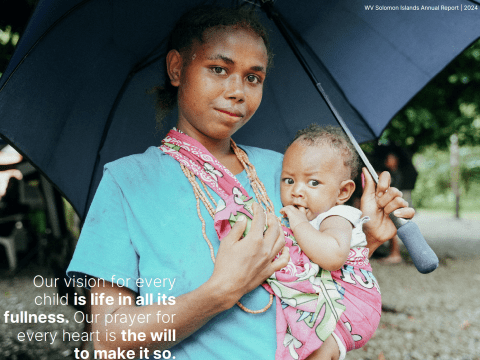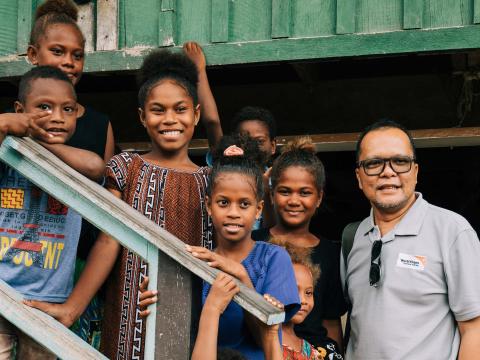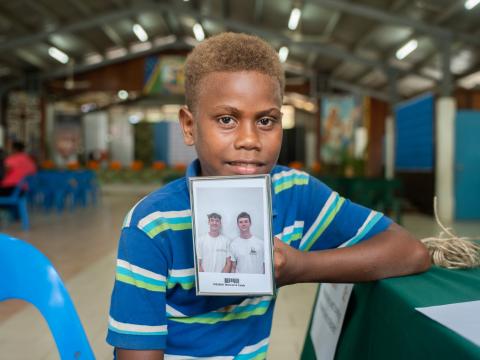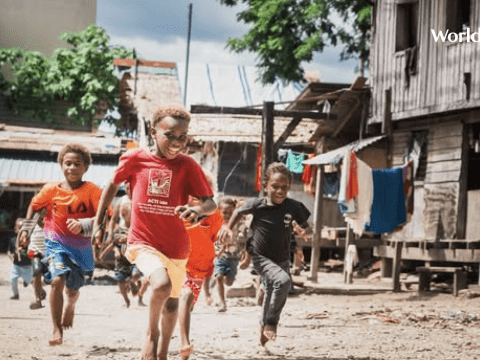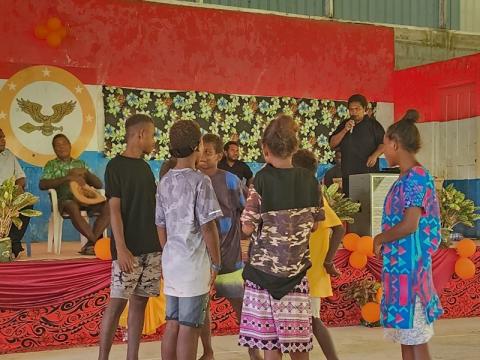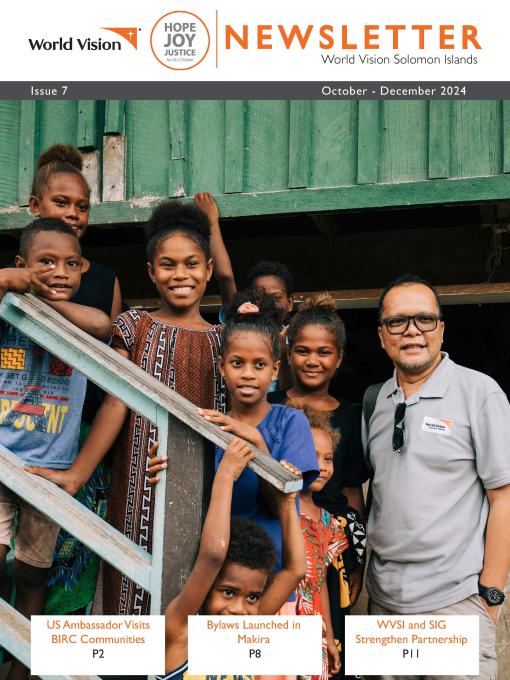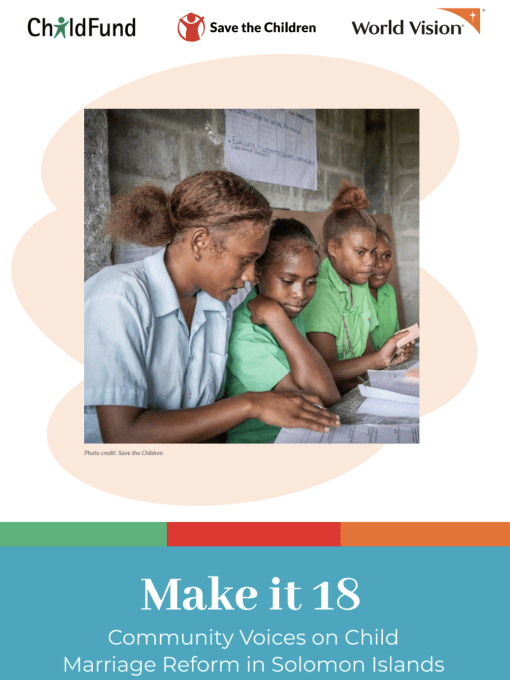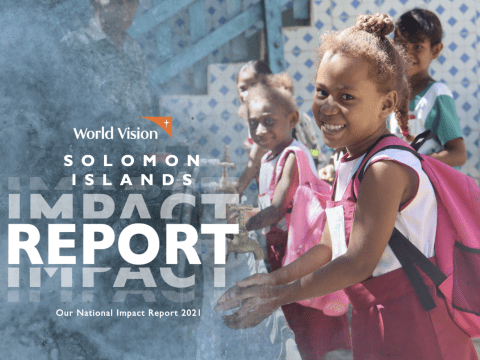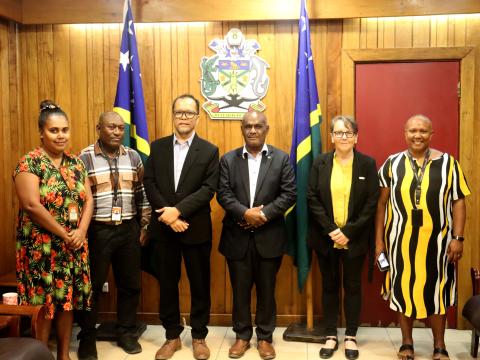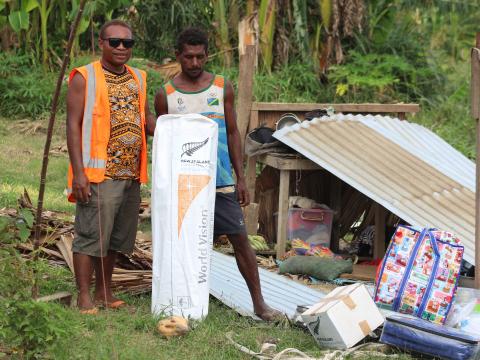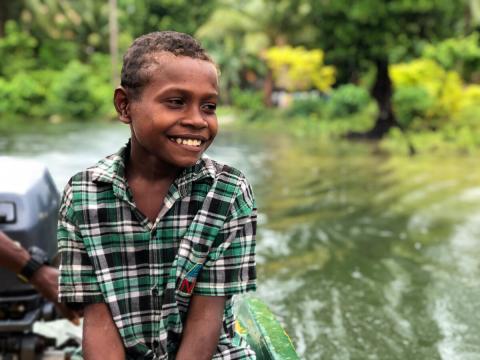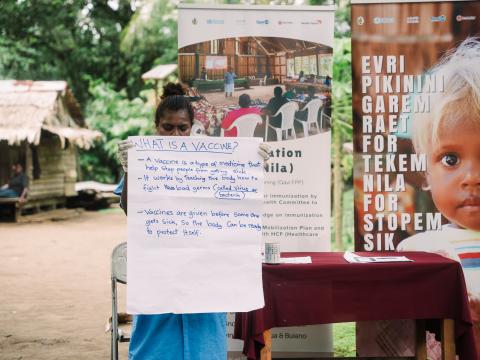
Solomon Islands
World Vision Solomon Islands
World Vision Solomon Islands was established in 1983. On September 22nd, we commemorated our 40th anniversary in Honiara.
The Solomon Islands is the second most prone to natural hazards like cyclones, flooding, tsunamis and earthquakes. It also has an alarming concern on gender issues like violence against women and girls as 64% of women aged 15–49 have reported physical and/or sexual abuse by a partner. Almost 46% of Solomon Islanders live below the poverty line and 52% of youth (15-24 years) are unemployed. 85% of Islanders depend on subsistence livelihoods, with the same number having no access to formal financial services.
Communities in the Solomon Islands face challenges with market access due to poor infrastructure and low production capacity by farmers who lack inputs and technical skills.
WVSI programming is designed around four main sector areas to address issues arising around them. They are gender, disaster risk reduction, livelihood health and education.
Through our work, World Vision Solomon Islands has been able to impact the lives of more than 52,000 children across the country, through better access to health and education services and through more cohesive households in the financial year 2022. Parents are oriented about ways to solve issues and how to have better families. 2719 Saving groups were established and active using the Saving for Transformation model (S4T).
Our Impact
2,719
52,000
3,664
News about World Vision's 40th Anniversary in Solomon Islands
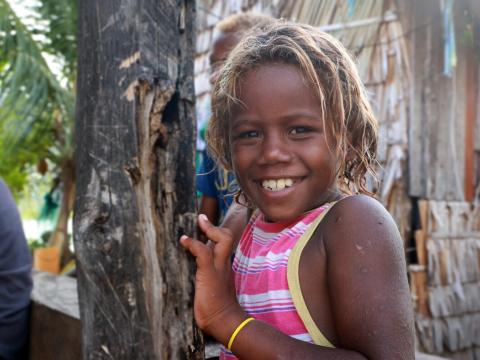
Models and Approaches
World Vision Solomon Islands in its approach to tackling the pressing issues within the country has several models and approaches.
In the area of gender issues, WVSI is working with faith-based leaders through a signed MOU with the two main church bodies like Solomon Islands Christian Association (SICA) and the Solomon Islands Full Gospel Association (SIFGA). Knowing the country its church is very influential, and the approach has worked. In addition, the model is the Channel of Hope model.
On the economic issues, WVSI is introducing savings using the famous WV S4T model. The communities are also trained in small business, financial literacy especially and management. The strong link to the disaster authorities ensures a link between the national government, provincial and communities to participate together during disasters to ensure lesser impacts.
